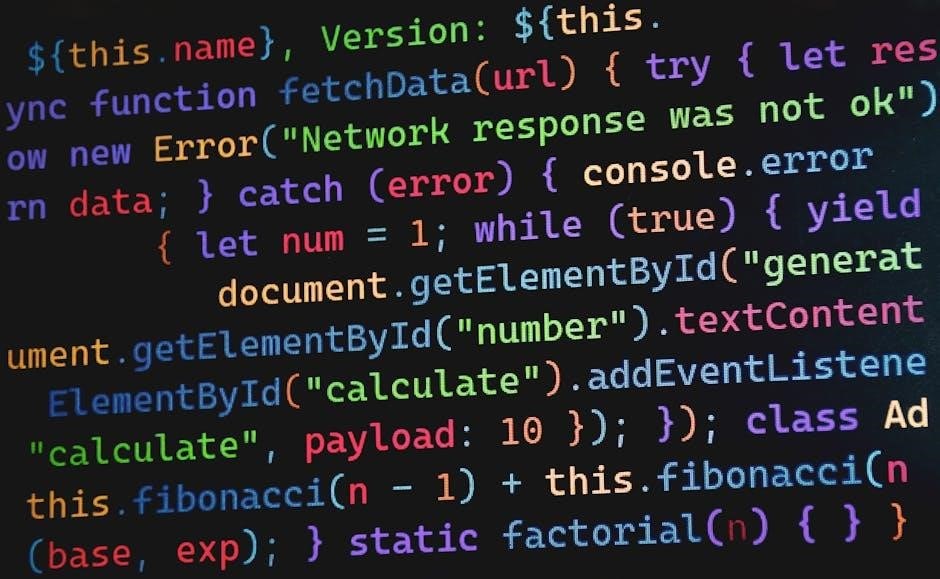The Subtle Art of Not Giving a Fck⁚ A Comprehensive Overview
This guide explores Mark Manson’s controversial self-help book, “The Subtle Art of Not Giving a Fck,” analyzing its core philosophy, counterintuitive approach to happiness, and practical strategies for navigating life’s challenges. Numerous online resources offer PDFs, chapters, and discussions, highlighting its popularity and impact.
Mark Manson’s “The Subtle Art of Not Giving a Fck” challenges conventional self-help wisdom. Instead of promoting relentless positivity, it advocates for a more realistic and nuanced approach to life. The core philosophy hinges on the idea that selectively choosing what we care about is crucial for well-being. The book argues against the pervasive societal pressure to care about everything, suggesting that this leads to anxiety, dissatisfaction, and a sense of being overwhelmed. Instead, Manson proposes focusing our energy and attention on things that truly matter, aligning our actions with our values. This involves a process of identifying and prioritizing what truly resonates with us, discarding what doesn’t, and accepting that some things are simply beyond our control. This deliberate choice of what to give a fck about forms the foundation of the book’s central argument.
The Book’s Main Argument⁚ Reframing Value and Happiness

Manson’s central argument revolves around reframing our understanding of value and happiness. He contends that the pursuit of constant positivity is a flawed approach to life, leading to a sense of inadequacy and dissatisfaction. Instead, he suggests that true happiness stems from accepting the inherent imperfections and difficulties of life. The book challenges the notion that happiness is a destination to be reached; rather, it posits that happiness emerges from navigating life’s inevitable struggles and finding meaning within them. This involves confronting our negative emotions, acknowledging our limitations, and accepting responsibility for our choices. By focusing on personal growth, contributing to something larger than ourselves, and cultivating meaningful relationships, we can build a life of purpose and fulfillment, even amidst challenges. This reframing of value shifts the emphasis from avoiding pain to embracing the process of overcoming adversity.
The Feedback Loop from Hell⁚ Understanding Negative Emotions
Manson introduces the concept of “The Feedback Loop from Hell,” a vicious cycle where negative emotions like anxiety and self-doubt fuel further negativity. This loop begins with a perceived failure or inadequacy, triggering negative self-talk and self-criticism. This, in turn, leads to further feelings of inadequacy and a sense of being overwhelmed, perpetuating the cycle. The book argues that attempting to suppress or ignore these negative emotions only strengthens the loop. Instead, Manson advocates for a more direct approach⁚ acknowledging and accepting these emotions without judgment. He suggests that by reframing negative emotions as feedback—as signals that something needs attention or adjustment—we can break free from the cycle. This involves identifying the root causes of negative feelings and developing healthier coping mechanisms, shifting the focus from suppressing emotions to understanding and managing them constructively. The key is to acknowledge the feeling without letting it define you.
Accepting Imperfection and Embracing Reality
A core tenet of Manson’s philosophy, as detailed in readily available online PDFs of “The Subtle Art of Not Giving a F*ck,” is the acceptance of imperfection. He argues against the pervasive societal pressure to maintain a facade of constant positivity and flawless achievement. The book challenges the reader to confront their inherent flaws and limitations, suggesting that striving for unrealistic perfection only leads to disappointment and self-criticism. Instead, Manson encourages a realistic assessment of oneself, acknowledging weaknesses and accepting them as integral parts of the human experience. Embracing imperfection, he suggests, is not about complacency but about recognizing that striving for continuous self-improvement is a more sustainable and ultimately more fulfilling approach than chasing an unattainable ideal of perfection. This acceptance frees up mental energy and allows for genuine progress, fostering self-compassion and resilience in the face of inevitable setbacks. The book emphasizes the importance of focusing on what’s within your control and accepting what’s not.
Prioritizing Values⁚ Identifying What Truly Matters
Central to Manson’s “The Subtle Art of Not Giving a F*ck,” readily accessible in various online PDF formats, is the concept of value prioritization. The book argues that many struggles stem from misaligned values – spending energy on things that ultimately don’t matter. Manson encourages a deep self-reflection process to identify what truly holds significance. This involves discerning between values that serve personal growth and fulfillment and those driven by external pressures or societal expectations. The process of identifying core values is presented as crucial for making meaningful life choices. By prioritizing values, individuals can strategically allocate their time and energy, focusing on what genuinely contributes to their well-being and happiness. This conscious selection process, as explained in the book, helps filter out the noise of superficial desires and societal pressures, leading to a more focused and purposeful existence. The book suggests that this intentional focus is vital to achieving a sense of direction and purpose.
The Importance of Self-Acceptance and Authenticity
Mark Manson’s “The Subtle Art of Not Giving a F*ck,” available in numerous online PDF versions, emphasizes the transformative power of self-acceptance. The book challenges the prevalent self-help narrative of relentless positivity, arguing that genuine self-acceptance involves acknowledging both strengths and flaws. It posits that true authenticity arises from embracing imperfections and recognizing that life inherently involves setbacks and failures. The text suggests that striving for constant positivity can be counterproductive, leading to self-deception and hindering personal growth. Instead, Manson advocates for a realistic self-assessment, promoting honest self-reflection and a willingness to confront uncomfortable truths. By accepting one’s limitations and vulnerabilities, individuals can cultivate a more genuine and resilient sense of self. This, according to the book, is a crucial step towards living a more fulfilling life, free from the constraints of striving for an unattainable ideal of perfection. The book encourages readers to find value in their unique experiences, fostering genuine self-compassion.
Dealing with Failure and Setbacks
Manson’s “The Subtle Art of Not Giving a F*ck,” readily accessible in various online PDF formats, directly addresses the pervasive fear of failure. The book argues that failure is not inherently negative; rather, it’s an inevitable part of life, offering valuable learning opportunities. Instead of viewing setbacks as catastrophic events, the text encourages a reframing of perspective, emphasizing the importance of learning from mistakes and using them as stepping stones for future growth. The book challenges the notion that avoiding failure is the key to success, suggesting that this avoidance often leads to stagnation and missed opportunities. It encourages readers to view failures not as personal shortcomings, but as data points—information that can be used to refine strategies and approach future challenges with a more informed perspective. The core message promotes resilience and a growth mindset, urging readers to develop the ability to bounce back from adversity, learning from each experience and progressing despite setbacks. This approach to failure is central to cultivating a more authentic and resilient life, as advocated throughout the book.
Navigating Social Expectations and Pressures
Many online PDFs of Mark Manson’s “The Subtle Art of Not Giving a F*ck” delve into the complexities of societal pressures and expectations. The book challenges the reader to critically examine the source and validity of these external pressures. It suggests that many social expectations are arbitrary and often stem from a desire for conformity rather than genuine personal fulfillment. Manson encourages readers to identify and challenge these expectations, advocating for the prioritization of personal values over the pursuit of external validation. The text promotes the development of self-awareness, urging readers to understand what truly matters to them and to resist conforming to social norms that contradict their own values and aspirations. This process involves making conscious choices about where to invest emotional energy, selecting engagements that align with personal goals and rejecting those that lead to dissatisfaction or conflict with one’s sense of self. The book champions authenticity and self-acceptance, empowering readers to live life according to their own terms, free from the constraints of unnecessary social pressures.

The Role of Values in Decision-Making
Numerous online resources discussing Mark Manson’s “The Subtle Art of Not Giving a F*ck” emphasize the pivotal role of personal values in effective decision-making. The book argues against basing choices solely on the pursuit of happiness or avoiding negative emotions. Instead, it advocates for aligning decisions with one’s core values. This involves a process of self-reflection to identify and prioritize those values. Once established, these values serve as a compass, guiding choices and providing a framework for evaluating potential outcomes. By prioritizing values, individuals can make decisions that lead to a more meaningful and fulfilling life, even if those choices involve temporary discomfort or setbacks. The book suggests that a life lived in accordance with one’s values brings a sense of purpose and integrity, regardless of external validation or societal expectations. This approach, widely discussed in online summaries and analyses of the book, fosters a sense of agency and control over one’s life, empowering individuals to make choices that resonate with their deepest sense of self.
Cultivating Meaningful Relationships
Discussions surrounding Mark Manson’s “The Subtle Art of Not Giving a Fck” frequently highlight the importance of cultivating authentic and meaningful relationships. The book challenges the notion that maintaining numerous superficial relationships is key to happiness. Instead, it emphasizes the value of investing time and energy in a smaller number of deeply fulfilling connections. This involves prioritizing quality over quantity, fostering genuine bonds based on shared values and mutual respect. Online reviews and analyses of the book suggest that developing meaningful relationships requires vulnerability, honesty, and a willingness to accept imperfections in oneself and others. It’s not about avoiding conflict or negativity entirely; instead, it’s about navigating these challenges with open communication and empathy. The concept of “giving a fck” selectively, as advocated in the book, applies to relationships as well. It means investing deeply in relationships that align with one’s values, while gracefully detaching from those that are draining or unfulfilling. This selective approach fosters healthier, more robust relationships and contributes to overall well-being, a perspective widely echoed in online discussions about the book.
Finding Purpose and Fulfillment
Manson’s “The Subtle Art of Not Giving a F*ck” doesn’t offer a simple formula for finding purpose and fulfillment, but rather a framework for identifying what truly matters to you. The book argues against the pursuit of generic, societal definitions of success and instead encourages readers to define their own values and pursue goals aligned with those values. Online discussions of the book often highlight the importance of self-reflection in this process. Identifying your strengths, passions, and what brings you a sense of accomplishment are crucial steps. The book suggests that true fulfillment often comes from overcoming challenges and facing adversity, not from avoiding discomfort or pursuing constant pleasure. Finding purpose, according to interpretations of the book, isn’t about discovering a grand life mission but about engaging in meaningful activities that align with your personal values. This might involve contributing to a cause you care about, mastering a skill, building strong relationships, or simply enjoying the present moment. The process, as discussed in online forums about the book, is iterative and requires continuous self-assessment and adjustment. It’s about embracing the journey, with all its ups and downs, rather than solely focusing on achieving a predetermined destination.
Practical Applications and Exercises
While the “Subtle Art of Not Giving a Fck” PDF doesn’t contain explicit, structured exercises, many online resources and discussions inspired by the book offer practical applications and activities for readers; These often focus on self-reflection and value clarification. Common exercises include journaling prompts encouraging readers to identify their core values, fears, and limiting beliefs. Others involve creating lists of priorities and goals aligned with those values. Readers are frequently encouraged to analyze their current relationships, identifying those that drain their energy versus those that provide support and fulfillment. Another practical application is to consciously choose where to focus one’s energy, deliberately selecting what to give a “fck” about and letting go of things that don’t align with their priorities. Many online communities dedicated to the book share personal experiences and strategies, offering additional practical applications and support. The emphasis is always on taking concrete steps towards living a more intentional and authentic life, rather than passively absorbing theoretical concepts. This active application of the book’s principles is often highlighted as crucial for achieving its intended effect.
Living a More Authentic and Fulfilling Life
Ultimately, “The Subtle Art of Not Giving a F*ck” PDF, and the discussions surrounding it online, advocates for a life lived with intention and authenticity. It’s not about apathy or indifference, but about discerning what truly matters and focusing energy accordingly. The book challenges the pervasive societal pressure to maintain a perpetually positive façade, acknowledging the inevitability of negative emotions and setbacks. By embracing imperfections and accepting the complexities of life, readers are encouraged to cultivate self-acceptance and build meaningful relationships. The conclusion isn’t a promise of effortless happiness but a roadmap for navigating life’s difficulties with greater clarity and purpose. Many online reviews emphasize the book’s power in helping readers prioritize their values, leading to a more fulfilling and meaningful existence. The call to action isn’t to simply stop caring, but to consciously choose where to invest emotional energy, creating a life aligned with one’s genuine values and aspirations. This self-awareness and conscious decision-making are presented as key to a more authentic and satisfying life.

